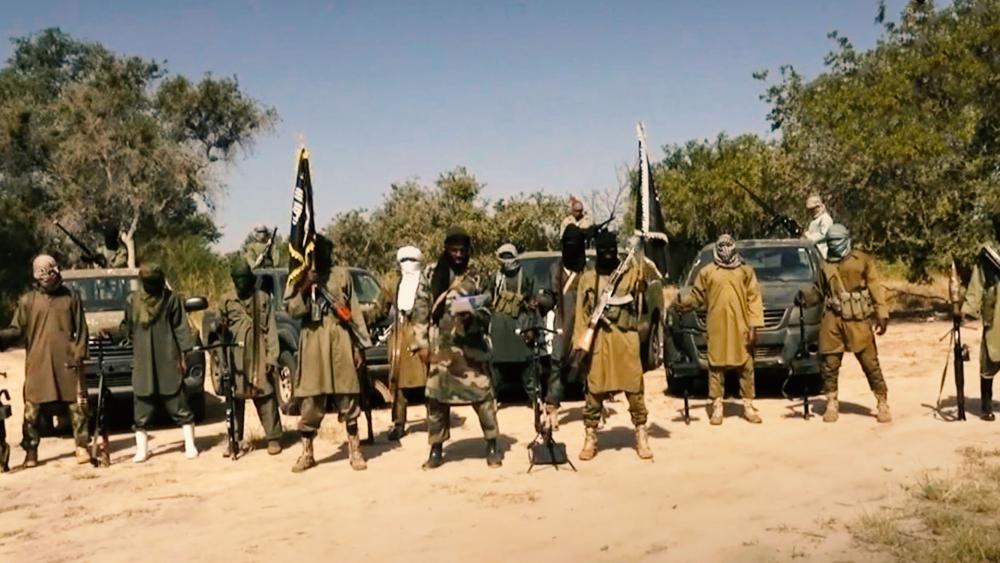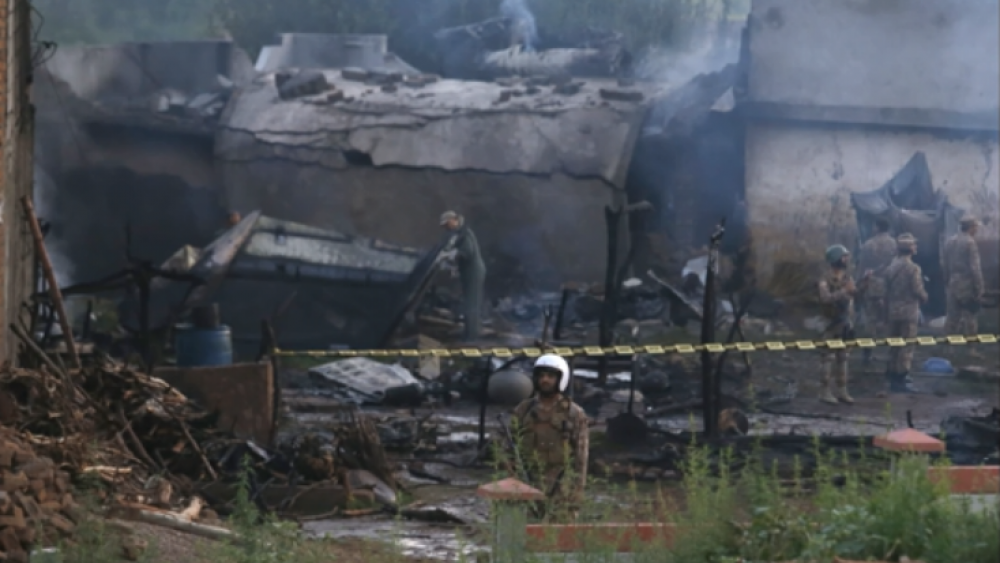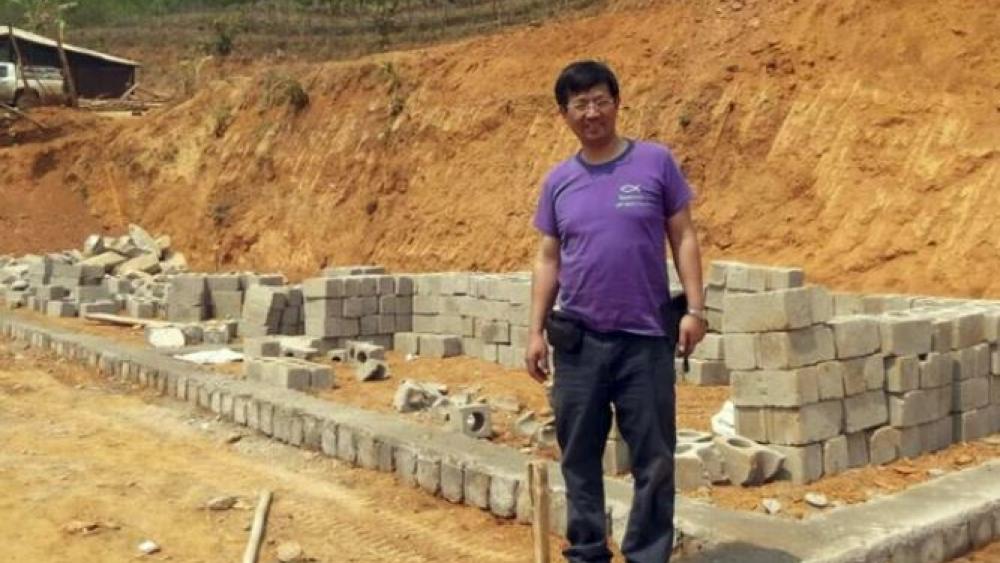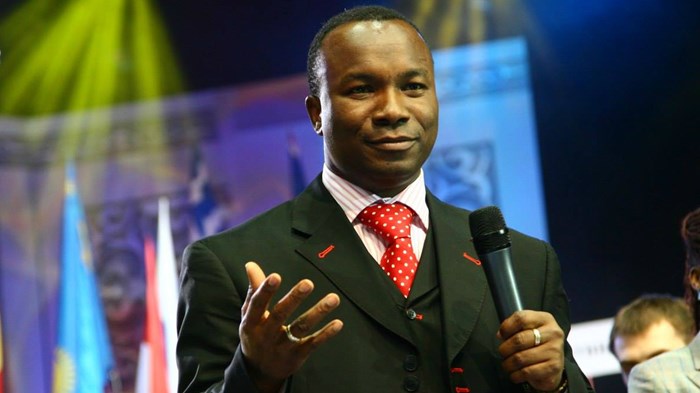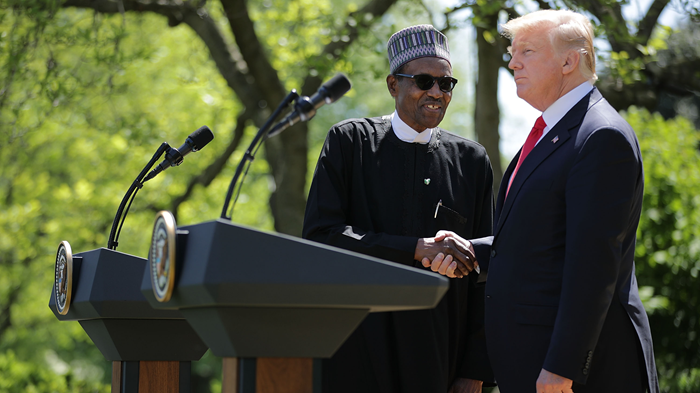
At this week's second
Ministerial to Advance Religious Freedom, 23 survivors from 15 countries
from all faiths were given a global platform in Washington DC.
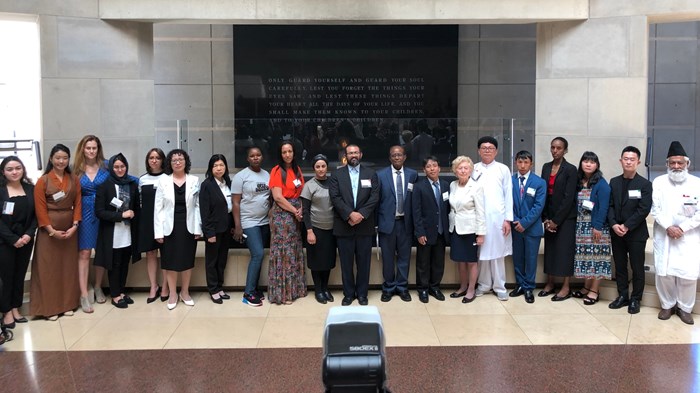
Image: Jeremy Weber
Survivors of religious persecution visit the
Holocaust Museum in Washington, D.C., during the State Department's
Ministerial to Advance Religious Freedom.
At this week’s Ministerial to Advance Religious
Freedom, billed as the largest human rights event the US State
Department has ever held, 23 people were invited to share their or their
loved ones’ stories of religious persecution.
Below are the 10 Christian survivors from 10 nations, followed by the non-Christian survivors.
Christian survivors of religious persecution:
China: Ouyang Manping is the wife of Pastor Su
Tifan, who on December 9, 2015, was placed under administrative
detention after law enforcement raided the Three Living Stone Church.
Cuba: Reverend Mario Félix Lleonart Barroso is
currently the pastor of the Iglesia Bautista de Waldorf (Baptist Church
of Waldorf), where he ministers to the Latino community. While in Cuba,
he planted and pastored Baptist churches in the province of Villa Clara
and in Havana. In 2016, after years of being harassed, detained, and
arrested multiple times because of his faith activities, Pastor Leonard,
his wife, Yoaxis, and his two daughters sought asylum in the United
States. They arrived in the United States on September 11, 2016.
Eritrea: Helen Berhane was held in a container for
almost three years because of her faith. She is now a gospel singer and
wrote a book about her experience.
Malaysia: Wife of Pastor Raymond Koh, the pastor
kidnapped on a highway by at least 15 men in three black SUVs on CCTV in
February 2017 with no proof of life since. Police say one demand for
money was opportunistic but that there is no evidence to the pastor's
whereabouts. There are possible links to Koh's role as a Christian
activist at a time when Malaysia was moving to enforce stricter Islamic
laws.
The pastor was accused of proselytizing Muslims in
2011, and a box containing two bullets, with a note in Malay threatening
his life, was sent to Koh's house. On April 3, the country’s civil
rights commission ruled that that the disappearance probably was the act
of the national police intelligence branch.
Iraq: Father Thabet Habib Yousif, Chaldean Catholic
Priest from Karamles, Ninevah. When ISIS came, the residents of Karamles
fled. Fr. Thabet remained behind to ensure everyone fled and ensure his
congregation was cared for in displacement. He helped organize
accommodation, food, and work. When Karamles was liberated, he was one
of the first to return home and help coordinate rebuilding. These
efforts included extending assistance for the small remnant of Shabak
families also returning.
Nigeria: “Esther,” 20, is from Gwoza in southern
Borno. She was held captive by Boko Haram for over three years. During
her captivity, she experienced terrible trauma—from witnessing how
people died to surviving sexual abuse. She escaped and was rescued by
the military. But her escape did not bring the freedom she had long
hoped and prayed for. She was kept in near-prison conditions until a
Christian doctor was able to reconnect her with her family. Her family
now welcomes her but local gossip attacking her daughter Rebecca as a
“Boko Haram Child” was very hurtful. With some help, she has become
stronger and ignores the public hate.
North Korea: Ill Yong Joo is a 23-year-old student
who defected from North Korea in 2008 at the age of 12. Joo has been an
active advocate in the past year. He visited the Department in October
2018 as a Liberty in North Korea Advocacy Fellow. For 10 years, his
family listened to South Korean radio, including Christian broadcasting,
which was one of the motivating factors for their escape.
He said, “Even listening to foreign radio is
considered a crime against the state. If I had been caught, I could have
been executed.” His father escaped first, years before he, his mother,
and sister crossed the Tumen River, trekked across Southeast Asia, and
finally resettled in South Korea after five months of traveling. His
father is now a missionary in South Korea.
Sudan: Meriam Yahia Ibrahim was charged with
apostasy and adultery in May 2014 for marrying a Christian man. She was
raised by her Christian mother and identified as Christian but her
father was Muslim and left her to be raised by her mother. She refused
to renounce her Christian faith and was sentenced to death row. She was
detained when she tried to leave the country after her release in July 2014 and now lives in the US.
Turkey: After practicing his faith in Turkey for
more than 20 years, Pastor Andrew Brunson was imprisoned in October 2016
on false charges without a trial until the spring of 2018. The Turkish
government presented no evidence that he was guilty, when finally
indicted in April 2018, on charges referencing “Christianization” and
religious activity, which raised questions about religious freedom in
Turkey and indicated that he has been targeted because of his faith. He
was released in October 2018 after a few “show” trials.
Vietnam: Pastor A Ga oversaw 12 house churches
associated with the Montagnard Evangelical Church of Christ of Vietnam
in the Central Highlands of Vietnam. After several detentions and over
40 police interrogation sessions involving torture, he and his immediate
family fled to Thailand in 2014. In 2017, the Vietnamese government
issued an arrest warrant against him. The Thai police arrested him, his
wife, and their son. Due to US intervention, Pastor A Ga and his family
resettled in the US as refugees in September 2018.
Non-Christian survivors of religious persecution:
Afghanistan
Hazara Shia: Farahnaz Ikhitari is a survivor of ISIS attacks. Ikhitari
is a Hazara Shia from Lashkargah in Helmand Province, who lives in
Afghanistan and is fluent in English. She received a BA in law and an
LLB in law from American University of Afghanistan, and got engaged with
another Hazara studying computer science at American University. On the
first day of Nowruz on March 21, 2018, her fiancé, her future
brother-in-law (12 years old), and her own brother (18) went to Karte
Sakhie to celebrate the New Year, along with many other Hazaras. ISIS
planted a bomb near the shrine in Karte Sakhie, and all three were
killed, along with 30 other people.
Bangladesh
Secular: Rafida Ahmed, who survived a 2015
ISIS-inspired assassination attempt but lost a thumb to the assailant
(her husband, Bangladesh American atheist Avijit Roy, was killed in the
same attack) is a prominent blogger. In November 2017 Bangladesh
arrested the attacker.
Hindu: Priya Biswas Saha is General Secretary of
Bangladesh Hindu-Buddhist-Christian Unity Council. Priya Biswas Saha is a
well-known figure in Bangladesh, both among the Hindu and human rights
communities. She recently addressed the IRF Roundtable and Ambassador
Sam Brownback, describing the situation of her ancestral home in
Firozpur being burnt by arsonists in 2019. Priya is a human rights
specialist in Bangladesh and focuses on religious minorities in
Bangladesh. She has authored and provided insight for numerous reports
on the plight of Bangladeshi minorities, particularly women who suffer
sexual and physical intimidation. She has a current visa to travel to
the United States.
China
Uighur Muslim: Jewher Ilham is the daughter of
Uyghur scholar, Ilham Tohti, an internationally noted moderate voice who
was dedicated to bridging the gap between the Uyghur people and the Han
Chinese. Jewher’s father was given an unprecedented life sentence based
on the writings on his website, Uyghur Online. As an advocate for her
father, she testified before the US Congressional-Executive Committee on
China, wrote op-eds in The New York Times, met with a number
of government officials including Secretary of State John Kerry, and
received numerous awards worldwide on behalf of her father. In 2015, she
recounted her experiences in the book, Jewher Ilham: A Uyghur’s Fight to Free Her Father
(University of New Orleans Press). Currently, Jewher is finishing her
degree in political science, Arabic (Near Eastern Studies), and Central
Eurasian Studies at Indiana University.
Tibetan Buddhist: Nyima Lhamo, a human rights
activist and the niece of Tenzin Delek Rinpoche, a renowned Tibetan
Buddhist lama who died in a Chinese prison while serving a life
sentence. She was born in Tibet but is now based in the US. She has
testified before the Congressional Lantos Human Rights Commission and
briefed numerous UN Special Mandate holders.
Falun Gong practitioner: Yuhua Zhang is a former
professor in China whose husband was arrested, tortured, and has been
disappeared by Chinese authorities.
Germany
Jewish: Irene Weiss is a Holocaust survivor born in
Bótrágy, Czechoslovakia (now Batrad, Ukraine). She moved to northern
Virginia in 1953. She earned a bachelor of arts degree in education from
American University and taught in the Fairfax County Public School
system in Virginia for 13 years. Irene is a volunteer at the United
States Holocaust Memorial Museum.
Iraq
Yezidi: Nadia Murad won the Nobel Prize last year for her work as a Yezidi survivor.
Pakistan
Ahmadiyya: Abdul Shakoor, elderly prisoner of
conscience released March 18, 2019. Was detained since December 2, 2015,
on charges of propagating the Ahmadiyya faith and stirring up
“religious hatred” and “sectarianism”; sentenced to three years in
prison for blasphemy and five years under the Anti-Terrorism Act on
January 2, 2016. Shakoor ran a bookshop in Rabwah, Punjab province, a
city of 70,000 that is 95% Ahmadiyya. Police and elite counter-terror
forces raided his shop, accusing him and his Shia assistant of selling
an Ahmadiyya commentary on the Quran and possessing sensitive materials.
His conviction was for “printing, publishing, or disseminating any
material to incite hatred” as well as for acts and speech that insult a
religion or religious beliefs or defile the Qur’an, the Prophet
Muhammad, a place of worship, or religious symbols. His appeal was
listed on the High Court docket in Lahore several times but never
actually heard. On March 18, 2019, he was released from prison, but the
charges against him were not dropped.
Advocate: Shaan Taseer is an advocate of
international religious freedom and based in Canada. He is the son of
Salman Taseer, the former governor of Punjab, Pakistan. Taseer called
for repealing Pakistan’s blasphemy laws and was then assassinated by his
bodyguard Mumtaz Qadri
in January 2011. Shaan Taseer has since been an advocate against
Pakistan’s blasphemy laws and has supported Pakistani NGOs working on
blasphemy cases.
Sudan
Minority Muslim: Badreldin Yousif Elsimat writes and
practices a moderate version of Islam advocating separation of mosque
and state and did not have a communal space to meet with his followers.
He wrote many books about his beliefs that are sold around the world
except in Sudan. He was arrested at his home on January 12 with five
followers regarding his sermons and the recent protests in Khartoum.
When detained he was asked about his religion and was placed with ISIS
fighters. He was not tortured but was forced to watch his followers be
tortured. Minority religious groups, including Muslim minority groups,
express concern they could be convicted of apostasy if they express
beliefs or discuss religious practices that differ from those of the
Sunni majority group.
Vietnam
Cao Dai: Luong Xuan Duong is a Cao Dai follower,
currently in Texas. He is a member of the Popular Council of Cao Dai
Religion. Due to his advocacy for religious freedom for his religious
organization, he was jailed for 30 months in 1996. In 2008, he was
issued an arrest warrant after he tried to convene a general assembly of
Cao Dai followers. He went into hiding for eight years and escaped to
Thailand in March 2016. In late 2017, he reunited with his wife and
daughter in Dallas, where he continues to fight for religious freedom in
Vietnam.
Yemen
Jewish: Rabbi Faiz Grady was a rabbi in Raydah,
Yemen, and was forced into hiding in Sanaa and then ultimately fled
Yemen for speaking out publicly after the murder of Rabbi Moshe Nahari
in 2008. US Ambassador Seche assisted United Jewish Organizations with
his rescue in 2009.

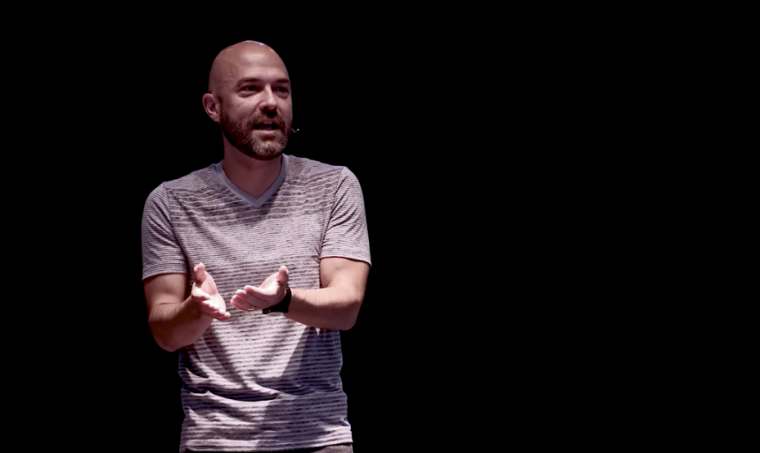
 “I regret
standing against marriage equality, for not affirming you and your
place in the church, and for any ways that my writing and speaking
contributed to a culture of exclusion and bigotry. I hope you can
forgive me,” Harris added.
“I regret
standing against marriage equality, for not affirming you and your
place in the church, and for any ways that my writing and speaking
contributed to a culture of exclusion and bigotry. I hope you can
forgive me,” Harris added.

